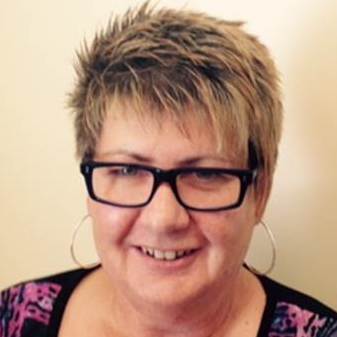Many of you will be aware of the call of Indigenous Australians towards ‘truth-telling’ as part of the process towards true reconciliation and restorative justice. Truth telling is not about allocating blame, or pointing the finger, or seeking revenge. It perhaps can be likened to a victim impact statement framed within the ruthless honesty and gentle hope of a restorative justice approach. Our Western culture, with its predominantly historical origins in that very British ‘stiff upper lip’ approach to all things difficult, is sadly more inhibitive than healing.
And our church is not exempt. Over the last two years, in my role as Coordinator of the Streams in the Desert Community, it has been deeply saddening to hear the stories of many women (and men) who have had extraordinarily damaging experiences, particularly relating to their commitment to gender equity and the role of women in our church, including support for the ordination of women. They have often been hurt further by the response of significant church members – at many levels – who have wanted to practice ‘secret keeping’ rather than ‘truth-telling’ and restorative justice.
One of the most powerful ways in the world to prevent healing of hearts, minds and souls is the practice of ‘secret keeping’. It happens in families, where abuse of many types is covered over; it can happen in footy clubs, where domestic violence perpetrated by players is ignored; and it can often happen in the workplace, where sexual harassment is implicitly condoned by lack of appropriate action. It happens often within our legal system: more cases of sexual assault are dismissed than result in convictions:
“It’s a shocking statistic that rarely budges: only one in 10 reported cases of sexual assault results in a conviction.” (https://www.abc.net.au/news/2018-11-14/why-do-so-few-sexual-assault-result-in-convictions/10492256)
A very recent example of the breaking of the practice of ‘secret keeping’ is the experience of Grace Tame, our 2021 Australian of the Year. Twenty-six year-old Grace ‘helped lead the fight to overturn a law preventing sexual assault survivors from speaking out …’. (para. 3., https://www.abc.net.au/news/2021-01-25/2021-australian-of-the-year-award-recipients-named/13089884)
“Hold on!” you might be saying. “How did we get from women’s ordination to sexual assault?!”.
The answer is simple: the processes and factors that underly the one in 10 statistic for sexual assault are right there in all the other types of discrimination and abuse perpetrated against women. A simple internet search will reveal that we now also talk about psychological, economic and verbal violence, for example. The factors and processes that discourage truth-telling, discourage listening, and discourage the engagement of restorative justice in terms of sexual assault exist for these as well. We’ll be talking about this more in the new Streams in the Desert Community website – see below.
‘Sexism’ is the broader term that encompasses all the different levels of prejudice and discrimination based on gender.
The LCA/NZ has never – that I am aware of – researched the extent of this kind of behaviour within our church. I continue to retain the view that the refusal to ordain women has contributed to discrimination against women in the church overall, and that the non-LCA teaching of men having ‘automatic’ authority over women because they were made first has also contributed to sustaining this. The DOHA document by the United Nations has this to say:
Sexism may arise because of socialized concepts of privilege and entitlement. “Privilege” is defined by the Oxford English Dictionary as “A special right, advantage, or immunity granted or available only to a particular person or group”. “Entitlement” is defined as both the “fact of having a right to something” and the “belief that one is inherently deserving of privileges or special treatment“. (emphasis mine: para. 4., https://www.unodc.org/e4j/en/integrity-ethics/module-9/key-issues/forms-of-gender-discrimination.html)
Sounds awfully like the teaching of male headship, doesn’t it?
Sexism is alive and well in our church, and it is an absolute contradiction of Jesus’ words — ‘Love your neighbour as yourself.’
Let’s be clear, though, there has been some progress in the LCA/NZ.
You will be aware that it has taken us some time to welcome women into the following roles:
- vote at congregational meetings (1966)
- be delegates at Synod (1981)
- be a member of church boards and committees (1984)
- be included in the guidelines for reading lessons in worship (1984)
- assist in the distribution of Holy Communion (1989)
- be a lay assistant as an alternative to elder (1990)
- be chairperson of a congregation (1990) (para. 1., http://www.altogetherinministry.org.au/history-of-aim.html )
It has also been wonderful to see the changes made to the processes of the LCA/NZ’s Professional Standards Department in the last few years to address some of the explicitly discriminatory behaviour that nonetheless persists. We do not, as yet, have a formal Equal Opportunities Employment policy or explicit Gender-Based Harassment policy. In 2013, the Lutheran World Federation (LWF) released a Gender Justice Policy for member and associate member churches (at present the LCA/NZ is the latter). A further one-page document, Gender Justice Principles Summary followed (DTPW-WICAS_Gender_Justice.pdf (lutheranworld.org))
Wouldn’t it be great if congregations and Districts and our Synod in 2021 would propose and adopt this, as well as commit to researching and developing strategies to address sexism in our church?
It is also a relief to see that the Ecclesiastical Discipline, Adjudication and Appeals Review is firmly on the agenda for General Convention of Synod 2021. (http://www.generalsynod.lca.org.au/business/ecclesiastical-discipline-review/). This will undoubtedly be a heavy session, because it is closely tied to our core beliefs about right and wrong, justice and forgiveness, and personal experiences where individuals believe they have experience mistreatment of some kind. As we prepare for Synod 2021 let’s be praying that delegates and speakers can approach this particular session with a Jesus-centred vision that embraces compassion, forgiveness, and hope for new life to emerge from old wounds, and allows for truth-telling to usher in the next steps of restorative justice.
It is difficult to understand why the principles of ‘restorative justice’ that have been fully embraced by our Lutheran school system have not also been embraced our church … but that is another story! If you’re unsure about the difference between restorative justice and retributive justice, just look it up online.
Back to truth-telling.
When I became involved in the women’s ordination movement some three years ago, I thought it was all just about a vote at Synod, and the LCA/NZ was just a bit slow in catching up to other Lutheran Churches around the world.
I am part of the group of laity and pastors who started the Streams in the Desert Community to advocate for the ordination of both women and men after the heartbreaking outcome of Synod 2018. The more we listen and the more questions we continue to ask, the clearer it becomes that the voices of women in the church have been suppressed to a large extent for a very long time.
As women, we have not always been allowed to tell our truths. We have not always been able to share our hurts, our woundedness, our grievances, and even our expressions of joy and hope and our stories of Jesus’ amazing inclusive love, and have been shut down as teachers, prayers, and servants too many times.
At the conclusion of Synod 2018, comments were made that our church is a ‘wounded church’.
If you and I truly want the church to heal, we must learn to invite and embrace truth telling. We must learn to listen with compassion, grace and empathy to the stories and experiences of our wounded and listening to our women is critical.
We must embrace truth-telling.
Listening non-judgementally to the stories here on Women at the Well is one way to do this, and passing on the details of how to connect this page to others is critical.
Recognising the wounded in our own networks, as well as our congregations, will also help. Undertaking training to listen with empathy (rather than intervene and tell truth-tellers what they should do to fix things) and understand the trauma of years of suppression is another.
Openly speaking about the healing needed for women in our church is extraordinarily powerful. It requires a great deal of courage on the part of the truth teller and the listener.
In terms of womens ordination, I invite you to ponder the truths of Proverbs 13.12:
Hope deferred makes the heart sick,
but a longing fulfilled is a tree of life.
Oh God, help us to recognise the wounded in our church, and the woundedness of our church.
Give us the grace, the compassion, and the skills to work to bring healing.
Show us the way to fulfil the hopes of women yearning to tell not only their truths, but the Truth, encompassed in our Lord Jesus Christ.
Teach us how to encourage and support and nurture the women and the wounded in our church, so they may become flourishing trees of life, enabled to shelter and nourish those within our church and those in the world around us with your Gospel.
Lord Jesus, hear our prayer.
Brenda Jericho is Connections Coordinator for the Streams in the Desert Community.





